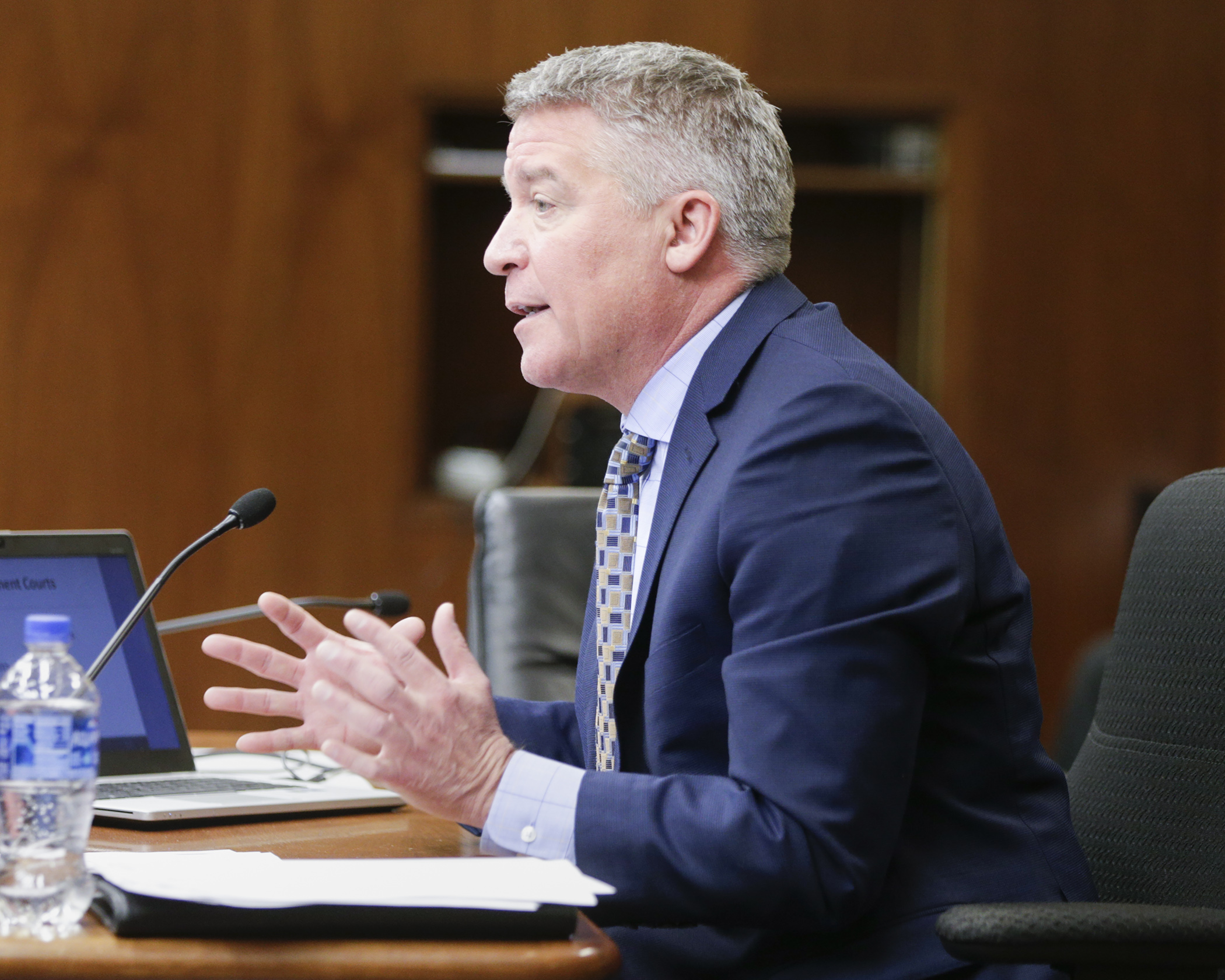Recent updates to judicial programs helping litigants, others

The Minnesota Judicial Branch has undertaken several recent initiatives to simplify cases moving through the court system, expand services to help litigants represent themselves, and protect the elderly and the vulnerable.
State Court Administrator Jeff Shorba highlighted these and other ongoing statewide judicial projects to the House Judiciary Finance and Civil Law Division on Wednesday.
The most significant change is an electronic filing system, which marked “the largest transformation in the 150-year history of the judicial branch,” Shorba said.
The eCourtMN update has replaced the use of paper to allow 24/7 filing of court documents using fillable forms on the judicial branch’s website, Shorba said. This system also provides instant access to court records for the public, judges, court employees, and others who interact with Minnesota’s courts.
“We believe that this has resulted in more convenient online service to those we serve, while also aiming to making our operations more efficient,” Shorba said.
He also outlined a statewide self-help center that assists litigants who chose not to hire an attorney. These services take the form of one-on-one phone counseling, email counseling, self-help workstations in courthouses, and a self-help clinic at the State Law Library for appellate cases.
As part of an effort to improve protections for the elderly and vulnerable adults, the judicial branch launched the Conservator Account Review Program in December 2018. Under this program, conservator-managed financial accounts in the state are reviewed by trained financial experts, Shorba said. This gives district court judges more tools and information when hearing conservatorship cases.
The program mandates online reporting by conservators, and Shorba noted that the software has built-in red flags that identify possible discrepancies in how these accounts are being managed.
“In nearly 12 percent of the cases under the program, auditors have found concerns of loss or comingling of funds and we have promptly been able to hold hearings on these cases,” Shorba said.
The judicial branch has also expanded the number of specialized treatment courts statewide to hear drug, DWI, and mental health cases.
These specialized courts involve intensive collaboration among public defenders, probation officers, prosecutors, and social workers to develop treatment plans for offenders. Shorba noted that these treatment courts have consistently shown that they reduce recidivism for those who successfully graduate from a court-ordered treatment program.
Rep. Marion O'Neill (R-Maple Lake) stated that she has personally witnessed the ability of these courts to better serve offenders who need treatment. “These courts are an amazing collaboration of everyone who could possibly have an input to that person’s life,” she said.
Related Articles
Search Session Daily
Advanced Search OptionsPriority Dailies
Ways and Means Committee OKs proposed $512 million supplemental budget on party-line vote
By Mike Cook Meeting more needs or fiscal irresponsibility is one way to sum up the differences among the two parties on a supplemental spending package a year after a $72 billion state budg...
Meeting more needs or fiscal irresponsibility is one way to sum up the differences among the two parties on a supplemental spending package a year after a $72 billion state budg...
Minnesota’s projected budget surplus balloons to $3.7 billion, but fiscal pressure still looms
By Rob Hubbard Just as Minnesota has experienced a warmer winter than usual, so has the state’s budget outlook warmed over the past few months.
On Thursday, Minnesota Management and Budget...
Just as Minnesota has experienced a warmer winter than usual, so has the state’s budget outlook warmed over the past few months.
On Thursday, Minnesota Management and Budget...